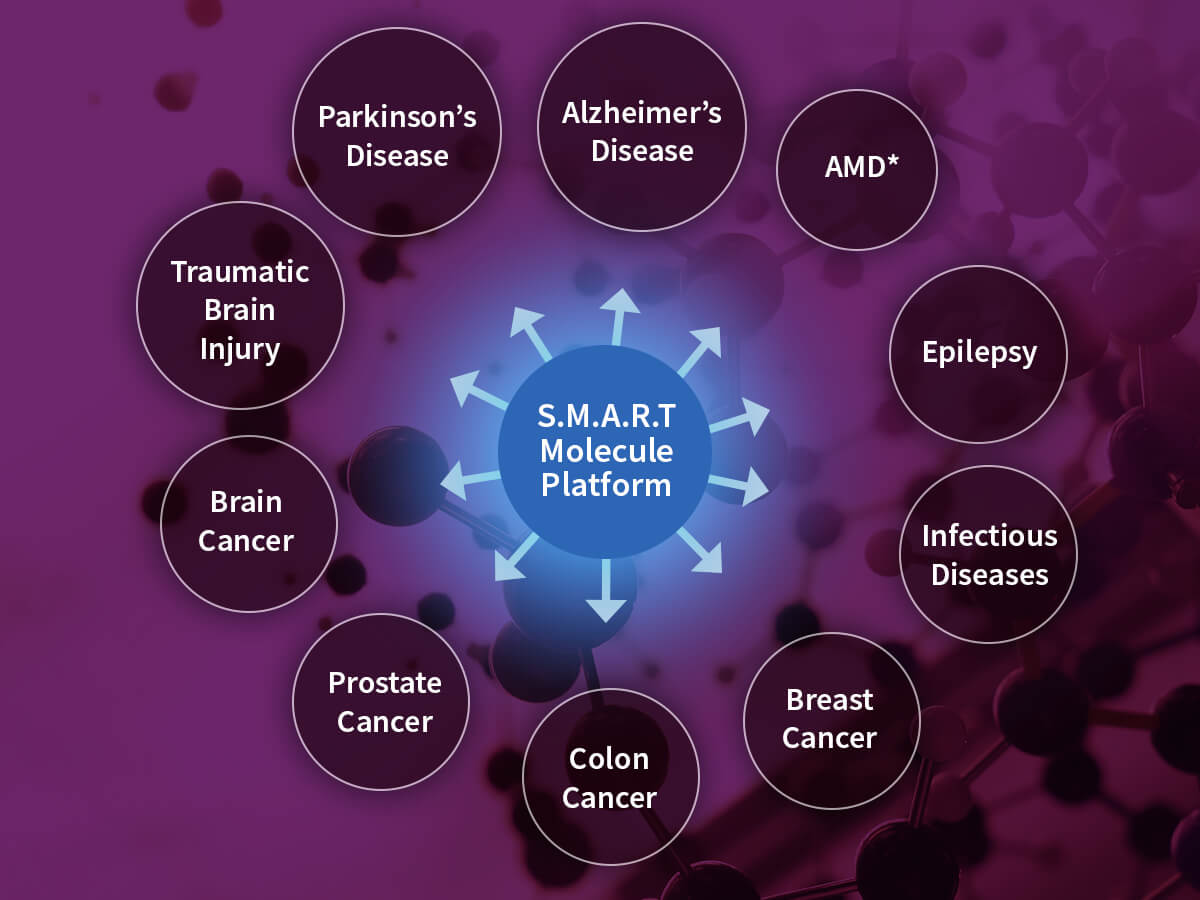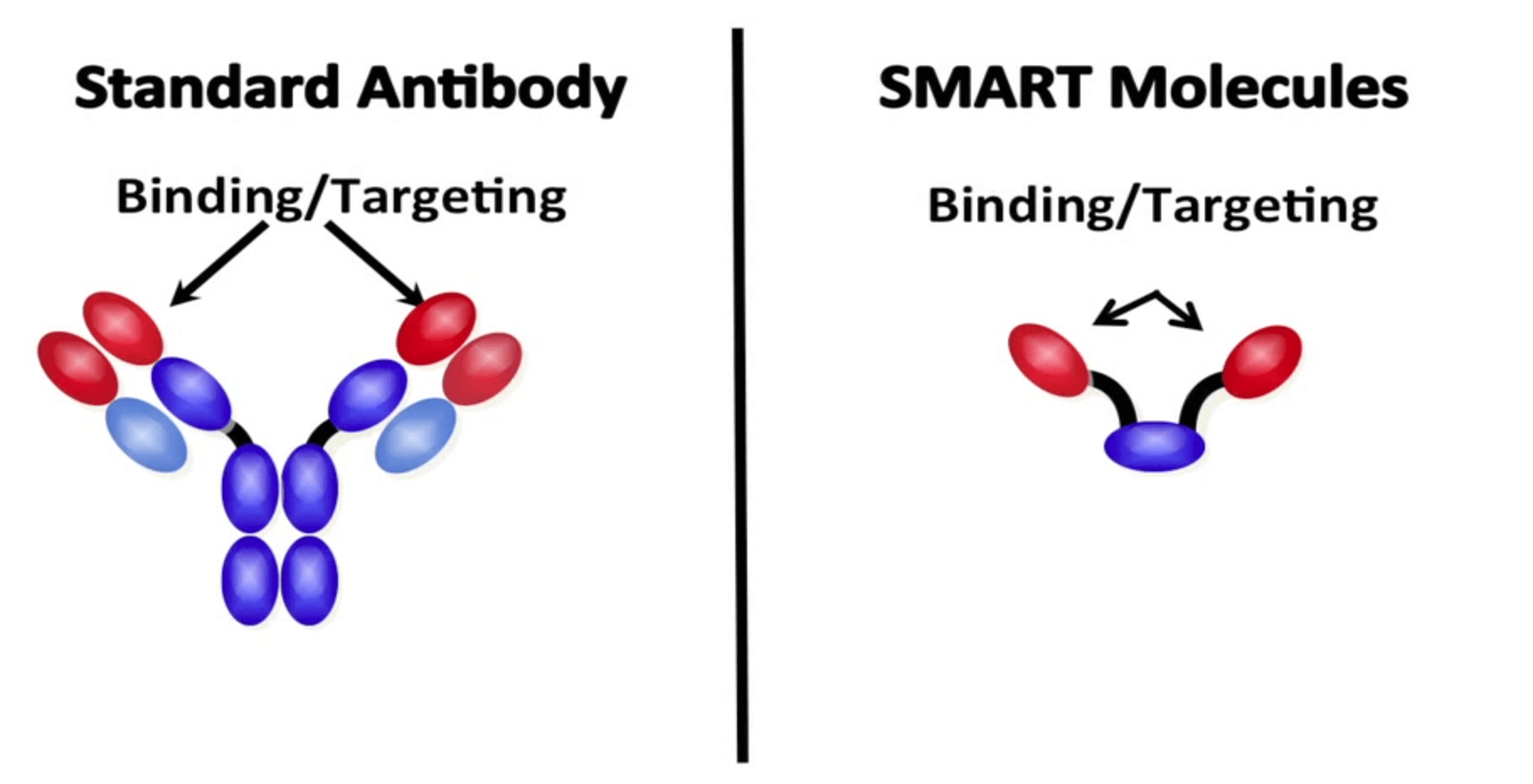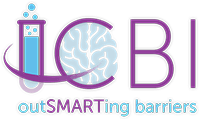One solution.
The SMART Molecule (SM) design enables rapid customization and development of new therapies for a wide range of complex diseases that include diseases of the CNS (e.g., Alzheimer’s and Parkinson’s) but also the treatment of various cancers, including brain, breast, colorectal, lung, prostate, and ovarian, as well as Age-Related Macular Degeneration (AMD).
Although initially focused on treating Alzheimer’s and Parkinson’s disease, SMART Molecules have been designed for virtually any disease that leaves a target protein. Thanks to this monumental achievement, ICBI is confident in the ability to penetrate any tissue in the body and bring SMs with lower bulk and less likelihood of side effects to more areas of the body affected by other diseases.

Current Therapeutic Approaches to Neurodegenerative Disorders
Mechanical Approach
Achieved by poking holes in the BBB. Highly invasive with a very high risk of infection and side effects.
Small Molecule Approach
Most popular method, but characterized as lacking specificity. Small Molecules are unable to last long enough in the brain to make any signifiant differences.
Monoclonal Antibody Approach
Specific, but in many cases too large and bulky, making it difficult to get across the BBB.
The SMART Molecule Approach to Neurodegenerative Disorders
Smaller and More Efficient than Antibodies
Although the best of the three current therapeutic approaches to Neurodegenerative Disorders, monoclonal antibodies demonstrate poor BBB permeability and have proved to be highly toxic in human trials.
50 to 150 fold higher BBB permeability than reported for conventional mouse monoclonal antibodies, SMs are developed as reduced sized, less-bulky antibody mimics, making them more effective at penetrating the BBB while remaining highly specific.

Higher Specificity
Failure to develop curative drugs for brain diseases is due largely in part to the inability of most drugs even being able to reach the CNS or the lack of target specificity in those molecules that do reach the CNS. ICBI SMs platform send molecules across the BBB with high target specificity, leading to potentially game-changing therapeutic outcomes.
Binds and Destroys Targets
ICBIs research has unequivocally demonstrated that SMs not only have the ability to cross the blood-brain barrier and into the central nervous system, but also bind to their targets with high specificity and stay in the brain for at least 9 days.

Broader Applications, More Possibilities.
The binding centers of our SMART Molecules are modular. Each binding center, represented by the different colors, can represent a different disease or different stage of a disease. One molecule is capable of treating up to four diseases or four aspects of one condition.

Validation of Clinical Potential of alpha-synuclein Smart Molecule
Validation of ICBI’s blood-brain barrier permeability and target specificity by Dr. E. Masliah of the University of California San Diego points to the clinical potential of the alpha-synuclein Smart Molecule. The experiments conducted by both parties proves ICBI’s ability to penetrate the blood brain barrier in an alpha-synuclein transgenic moue and also shows how it is specifically bound to both Lewy body-like deposits and α-syn aggregates.
In addition, with the help and support of the Michael J. Fox foundation, ICBI has also proved excellent ex-vivo tissue specificity of alpha- synuclein shown in alpha-synuclein transgenic mice models and patient tissues.

